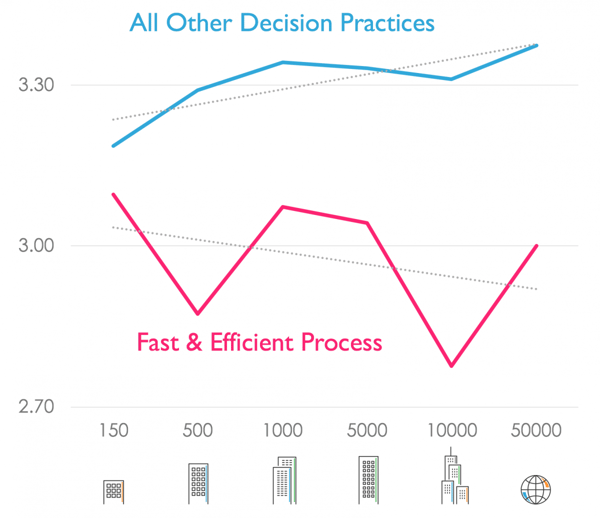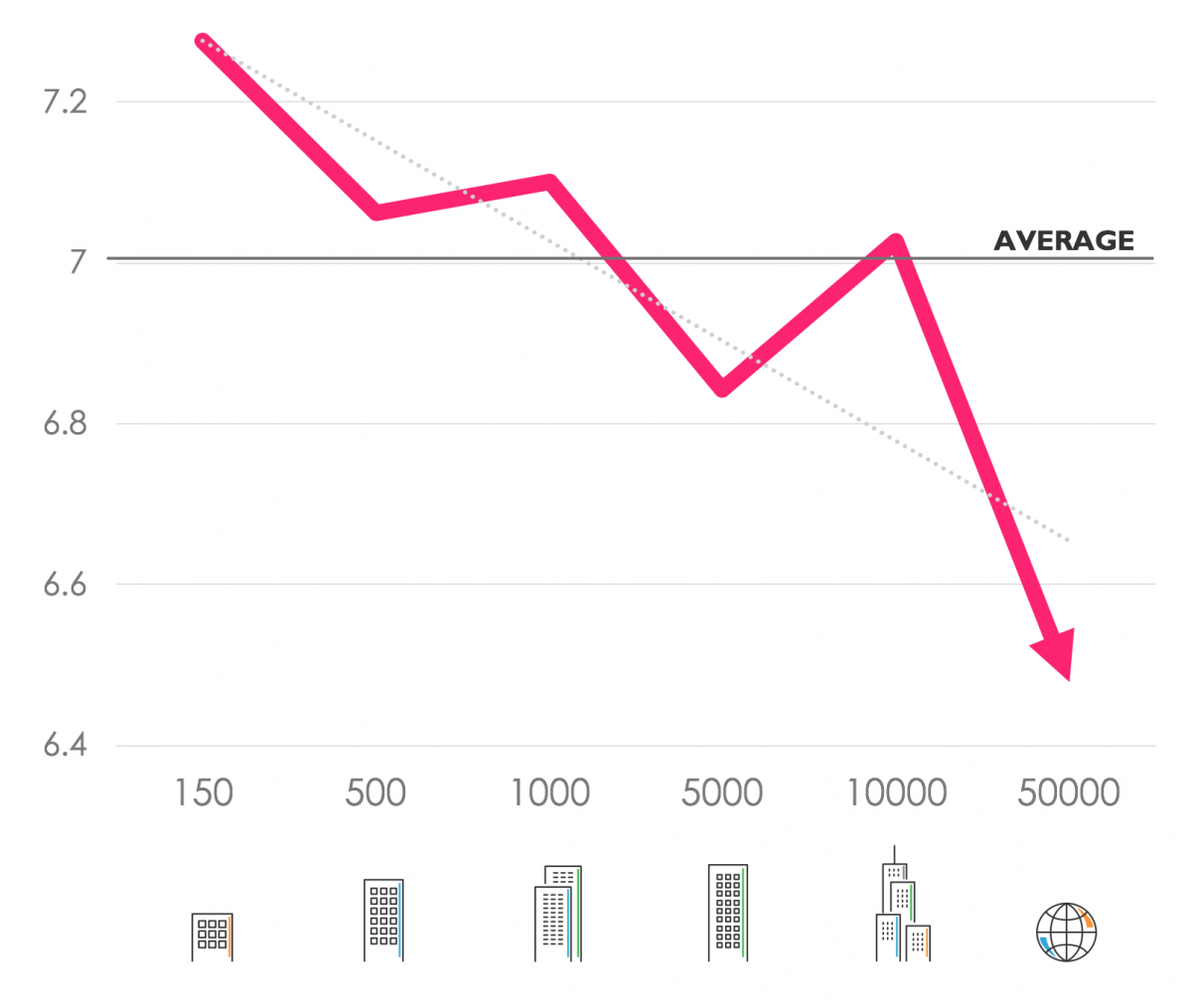New Cloverpop research shows that as companies get bigger, their decision effectiveness declines. That means most large companies earn sub-par D grades for decision-making, significantly below the already mediocre average score of 7 on a 10-point scale. This is a critical finding for leaders of innovative businesses that rely on decision making to drive competitive success.
On the surface, this is not a surprising result. Conventional wisdom says that smaller companies are more nimble and aggressive, so it makes sense that they are better at making, communicating and executing decisions. There is even a behavioral science theory called the Dunbar number that says people can only maintain social relationships with around 150 people. Since business decisions are a social activity, this may explain why companies encounter more decision-making problems as they increase in size.
But deeper analysis shows there is more to the story.
Large Companies Excel at Process and Analysis
By measuring seven key decision practices that distinguish top performing companies, we learned that companies actually get better at most decision practices as they grow larger. Enterprise companies make huge investments in their decision practices as they scale. They hire talented people, gather mountains of data, invest in training and process and culture. And those investments have positive results. Bigger companies are especially good at effectively analyzing decisions and ensuring that decisions align with company goals. But...
Longer Decision Cycles Overwhelm All The Advantages Of Scale
Unfortunately for most, all those investments are undermined by a decline in speed and efficiency as companies grow.

Slowness and inefficiency are killers. Excessive meetings and discussions in email or chat take people away from action-oriented work and burn valuable calendar time. The resulting longer decision cycles have a cascading negative effect. Slow decisions leave more room for competitive threats to derail decisions after they are made. Longer decision cycles encourage bigger, riskier, more expensive decisions to try to “catch up” with the competition.
Delegation, transparency and accountability suffer as a result of this increased decision stress. More space opens up for biases and politics to muddy the waters.
These quotes from struggling companies tell the all-too-familiar story of our research:
- The bosses are always a major obstacle in getting decisions done.
- We waste time with too many meetings. We talk and talk and talk.
- When decision go wrong, there is a lack of accountability so change is slow.
Together, the negative impacts of slowness and inefficiency overwhelm the benefits of all the other investments combined. And the faster the world moves, the worse this problem becomes.
How To Excel At Any Scale
The good news is that not all large enterprises succumb to decision friction. Our research found that the top 10 percent of large companies have decision practices that are just as fast and efficient as much smaller companies, without sacrificing other strengths. Decision excellence is possible at any scale.
And this is what excellence sounds like:
- The distance between the CEO and the rest of the organization seems small.
- We clearly state who is able to make decisions. We don't have a ton of red tape.
- If we see a change needs to be made, we make it. Our decisions spread like wildfire.
Category kings dominate markets, and they have to scale successfully to keep their thrones. Here’s what to do to drive decision excellence at scale in your company:
- Learn more about effective decision practices so you can identify where your company excels, and where you fall short. Our free whitepaper, 7 Breakthrough Decision Practices, is a great place to start.
- Do an assessment of decision practices across your organization to benchmark your current performance and pinpoint areas for improvement.
- Sponsor an initiative to systematically measure and improve your decision practices focusing on quick wins that tell the story to the larger organization, then scale up.
Winning is not about averages, it’s about being better than the rest. This research drives home the fact that a disciplined approach to your company’s decision practices is the way to win at scale.
Originally published on Forbes.

